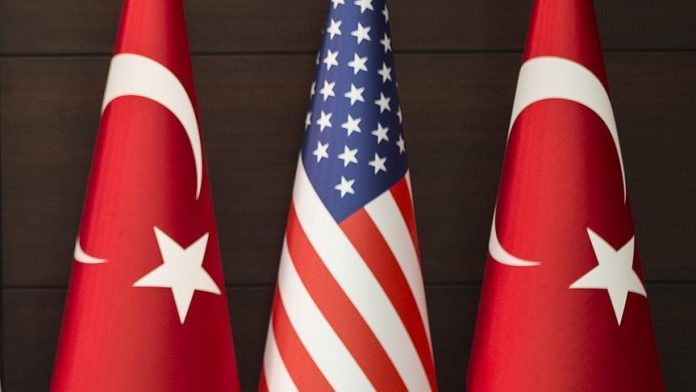ANKARA: The US decision to end its preferential trade agreement with Turkey contradicts their $75 billion bilateral trade target, Trade Minister Ruhsar Pekcan said on Friday, but welcomed Washington’s move to halve tariffs on steel imports.
The White House said on Thursday it was terminating Turkey’s eligibility for the Generalized System of Preferences (GSP) programme, given its level of economic development. It also halved tariffs on Turkish steel imports to 25pc.
“Lowering the tariffs to 25pc from 50pc is positive, but we expect the lifting of all obstacles to bilateral trade,” Pekcan wrote on Twitter, saying they affected US companies, too. She said work would continue to boost the trade volume.
The United States imported $1.66 billion worth of goods in 2017 from Turkey under the GSP, or 17.7pc of total imports from Turkey, the US Trade Representative website said. Imports include vehicles, vehicle parts, jewellery and precious metals.
The United States had begun reviewing the NATO ally’s status in the programme last August when the two countries were embroiled in a diplomatic row. Ankara had been hopeful that Washington would not go ahead with the move, saying it ran contrary to the two countries’ trade goals.
Turkey was one of 120 countries that participate in the GSP, the oldest and largest US trade preference programme. It aims to promote economic development in beneficiary countries and territories by eliminating duties on thousands of products.
During last year’s spat, President Donald Trump imposed higher steel tariffs to put pressure on Turkey to release an American pastor detained on terrorism charges.
The pastor was released last October, but the friction in part sparked a currency crisis that tipped Turkey’s economy into recession last year, knocking nearly 30pc off the lira’s value over the year as a whole.
LIRA UNDER PRESSURE
The lira has weakened as much as 15pc further this year, partly from concerns about a re-run of the Istanbul mayoral election and the risk of US sanctions. It fell again on Friday after the latest US moves.
The currency stood at 6.0600 against the dollar at 1000 GMT, easing from a close of 6.0475 on Thursday.
“The US decisions were negatively priced, but the decisions do not have a clear economic impact,” said a treasury desk trader at one bank. “Markets will monitor political statements regarding relations between the two countries, given the risks that they have recently entailed.”
Ties between Ankara and Washington remain tense over disagreements ranging from Turkey’s planned purchase of a Russian S-400 missile defence system, which could trigger sanctions, to diverging interests in Syria.
US officials say Turkey’s planned purchase of the S-400s would jeopardize its role in building F-35 fighter jets as well as its purchase of the aircraft, which Washington says would be compromised by the Russian system.
Turkey wants the United States to extradite Fethullah Gulen, a Pennsylvania-based Muslim cleric who Turkish authorities say masterminded the 2016 coup attempt against Erdogan in which 250 people were killed. Gulen denies the allegation.




